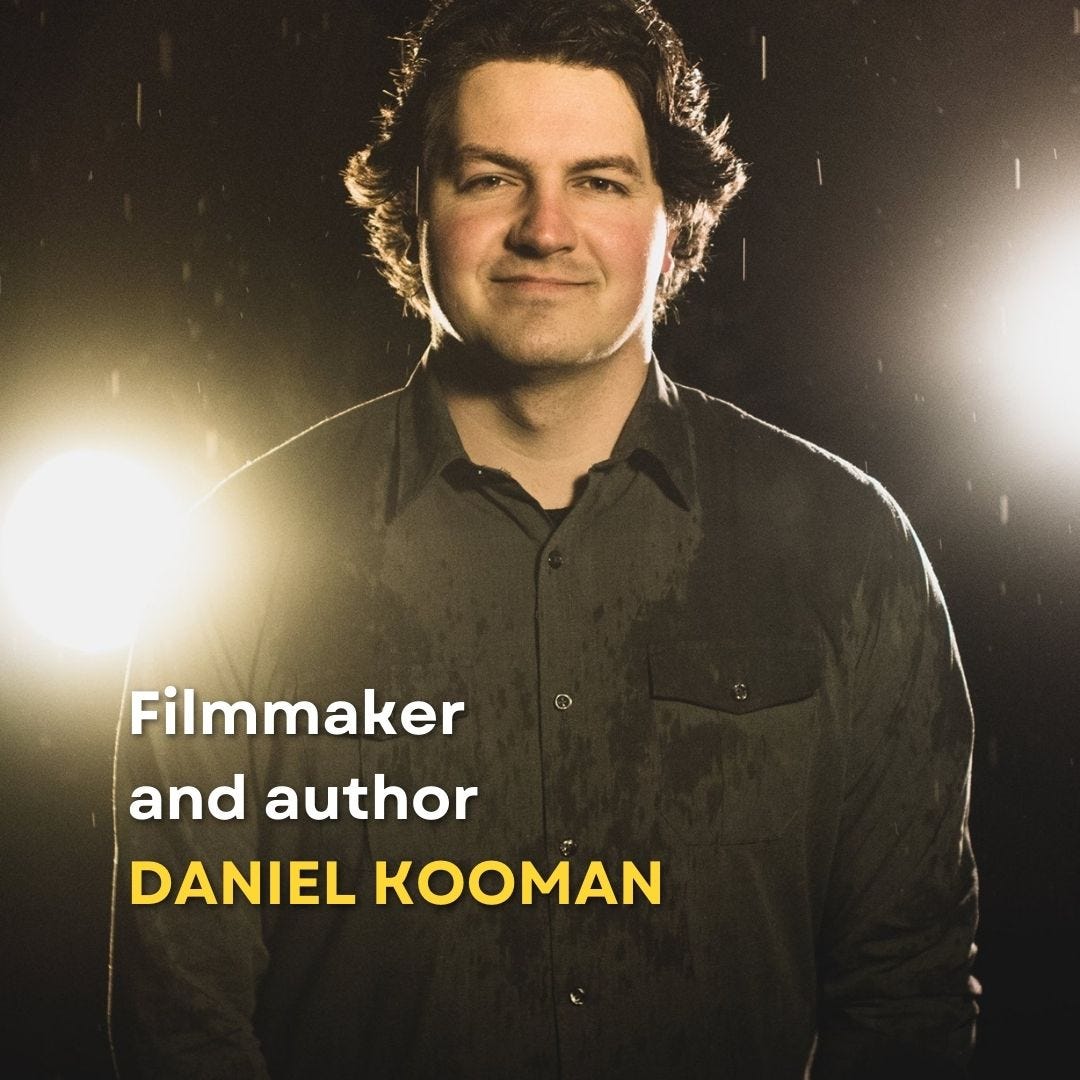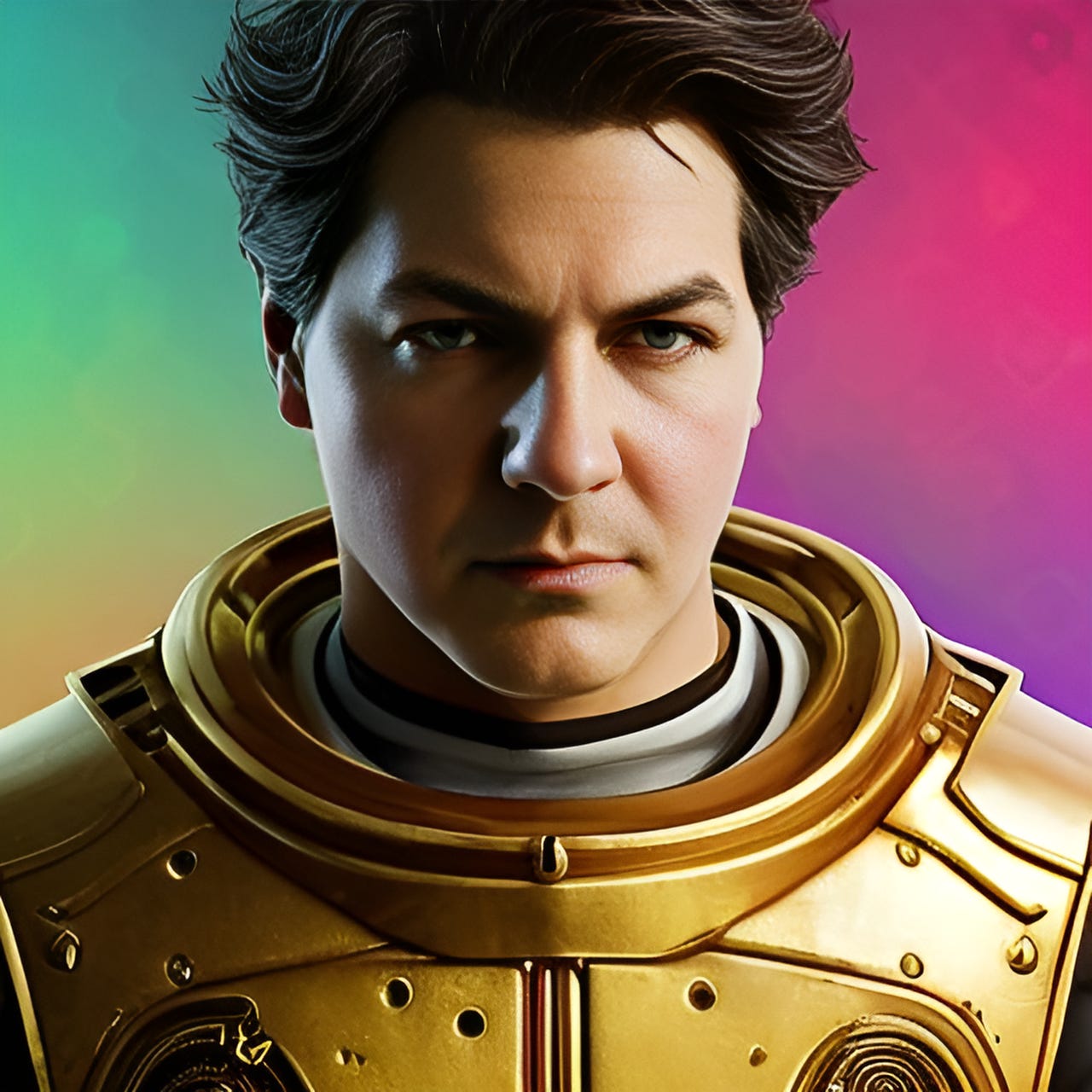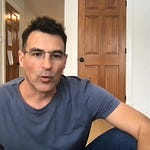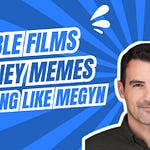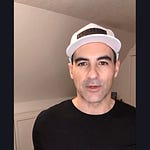Daniel Kooman is busy these days. Having just led one of the most successful faith-film crowdfunds of all time, he’s now gearing up to film a new biblical epic about the prophet Daniel.
In this interview Daniel shares about how film festivals were key milestones in his creative journey, the kind of writing that lights his fire, and why you need to take the leap of faith and just create.
The following is a condensed transcript of the video interview above. 📺☝🏻
You said yes to be a judge of the poetry contest that I'm running for subscribers (who can submit for free). So, two-part question. Why did you say yes, and do you regret it?
It is actually a privilege to be able to interact with people's creativity. That's been one of the passions of us at Unveil Studios— yourself, Matt, and I. We really thrive when our creativity is being tested and tried and actually put out to the world. It is a leap of faith to be a creative because you're sharing something with others. There's always that possibility that it will be loved or hated or judged—or in this case literally judged, but by a panel of people that are quite compassionate and care about the work.
So, I do not regret it. I really think that these are valuable creative pursuits that people should really jump into.
I've been asking each of the judges of the contest something like, When was the first time that you were aware of poetry, or, Do you have a memory of writing your first poem? What stands out to you as the first creative work of significance in your journey that you were part of creating?
The first two things that come to mind, one is doing book reports on video. How many remember the shoulder cams with the full VHS that you put an actual VHS into? Those were beautiful, because the format you recorded on, you popped into the VCR and you didn't have to capture the footage and you didn't even have to digitize or anything. But, that was in grade five, so I was 11 and it was a book report on a Sigmund Brouwer book. And this is a full circle moment because Sigmund Brouwer, who was my favourite author growing up, wrote the forward to my book, Breath of Life. And that was actually such a cool picture of creativity coming full circle because when I was in grade five doing that book report, he came to our classroom in Alberta at the Red Deer Christian School and shared about the impact and influence of writing and of doing creativity—you never know how far it will reach.
I would have been around 11 years old. That message obviously grabbed my heart because all those years later, not only was he still on my mind and I wanted him to be a part of the project I was creating, but it inspired me to write and to get actually out there and create. So yeah, it's pretty cool how those things come full circle.
The other one was when I was in grade seven or eight, there was one of those kind of scam poetry contests where they actually do it just to print a book and then you submit with a fee. And I think that I was even aware this was just a money-grab by the publisher.
But the funny thing is, as much as that was an interesting entrance—and didn't necessarily seem like it would upfront have any sort of fruit attached to it—that in some ways encouraged me to become a writer. And so even if it's a small and an unlikely attempt or seed or venture, I think that creativity always has actual payoff.
Daniel is one of the judges of the Things I Wrote Down Poetry Contest this year,
lending his expertise to select the three winning poems.
You mentioned how a contest prompted you to write and to consider yourself a writer. How else have festivals or contests supported your creative journey?
Film festivals have been a big part of the Unveil Studios story.
Early on we did the film called E for Everyone was kind of our film school. We went to Kenya, India, Thailand, and Malaysia. You were there, Matt, myself, and three of our friends.
And basically, getting it into film festivals was the only way that we could find an audience to be first-time filmmakers. It got into probably half a dozen film festivals and then we premiered it at Red Deer College Art Centre. I think we had 1,600 people that saw it there, and it was a huge independent film premiere success.
The interesting thing with that is, your community might— as much as you can be a prophet without honour in your hometown as the saying goes—there's also this element where your own community might be your biggest backers and they might be the people that come around and say, “Keep going; this is something you're actually good at!”
We had that happen along our journey. That happened locally but it also happened internationally. The other side of that coin is that when you get recognition from some festival in New York City, or some fest in Pennsylvania, or these different things places we did as we submitted different films, then we would win awards. We won best film at international festivals and different parts of the world from Europe to the US and She Has A Name and other projects like Dream won best series and best director and things like that. And when you get that recognition from those outside sources, that is very validating. It's like, “Okay, these are people that we don't know. They're not our community.” They don't have to kind of pat you back and say, “Keep going!” These are basically people reflecting on your work from a fresh vantage point and they're saying this is something worth doing.
I'm not saying you have to be recognized to keep going. But if you are putting yourself out there, what I'm saying is, if you're doing things with excellence, people will recognize that and you will get that feedback and that can really keep you encouraged to keep going.
Do you read much poetry and if so, where are you reading poetry these days?
I read a lot of poetry, and 99% of that poetry is probably in the Bible. It's one of the most inspiring poetic pieces of literature. It's the most inspiring because it's read more than any other poetry in the world, ever created. The Bible is the bestseller every year worldwide and printed millions times more than any other book. I think that that speaks to the validity and the power of its poetry because when you go to the book of Isaiah, or you go to the book of Psalms—there's poetry in Exodus. I was just doing some writing on my own Subsack newsletter just about the song of Moses. Some of the most epic moments in world history were captured in poetry and live on through the Bible and through other sources of literature. So for me that's always been an inspiration.
I think that the way that the psalmist David writes and the way that some of even Solomon's words are poetic, I think those really influence me in my writing and in my desire to put words together in a way that not merely sounds good or is formatted but actually has purpose and has meaning behind it. And there's no better place to find that purpose than the word of God, in my opinion.
We're both pretty high output creative individuals. Your weekly article on your Substack is my go-to Monday morning read. I get up at 5:07 a.m. every Monday morning and I have the coffee on. By 5:20, I'm reading your weekly post and it's like a devotion almost for me. It's so good.
Share what you are writing about right now— how did your latest series come to life?
So, right now I'm writing a book that is being released in chapter format on my Substack. It's called Women of the God Who Hides. I wrote a book last year that was called The God Who Hides. It comes from a chapter in Isaiah 45. It says, "Surely you are a God who hides himself." I was having this conversation with someone yesterday. It's like, why isn't it more obvious? It is obvious when you see it, but it's like God is actually hiding on purpose because there's something about the mystery of a human being pursuing the unknown and the mystery of God that actually allows us to be a part of the adventure of knowing God.
And if he was just projecting in three dimensions and four dimensions at all times everywhere, it would be not your own will that would be encountering It would be just some sort slave-follower kind of a thing. But he actually wants relationship. And so he actually is hiding himself. And you see this theme all throughout scripture.
So, looking at these inspiring stories from scripture—to me it's inspiring because it's like these are stories that survive three, four, five thousand years. And so there's something to them. If we're still talking about them, there's something about those stories that matter. I like Moses's mother, Jochebed, and Miriam (Jochebed had three kids that we know of, Aaron, the creator of the priesthood from Jewish history, and Moses, who's the most famous biblical character besides Jesus, and then Miriam).
These kind of figures are so inspiring to look. What can we learn from them and how is God in his hiddenness revealed to these people that had faith back in the day and how does that apply to us now? So, that's what I'm working on right now.
You wrote and are gearing up to direct a new biblical epic for theatres across the world. It's going to hit cinemas and it's going to be a story that's going to touch millions.
It recently became one of the most successful crowdfunded faith-based films of all time which must feel totally amazing from where you're sitting because it wasn't always a certainty that would happen. So tell us a little bit about Daniel, the film that you're creating. What do you want to say about it?
As we describe it in the synopsis, it's a true story about overcoming the impossible. And reflecting on the book of Daniel, I don't know if people watching have read it. You've probably heard about Daniel's encounter in the lion's den. You might have heard about these three guys that were thrown into a fiery furnace and fourth man appeared in the flames and they were untouched by the flames. The only thing that burned off of them were the ropes that were holding their arms bound.
These are true stories and they are about overcoming impossible difficulties that just represent these amazing kind of universal stories of what faith can do, if your faith is in God. And it's a super powerful thing because in the Kingdom of Babylon—the setting of the movie—was max peak golden kingdom glorious. It was earth at its absolute peak. And yet it was never enough to bring God or to bring a connection that was lifelong and eternal. I think in that story they're literally little kids, they were boys. They were teenagers that are sent from Jerusalem and are exiled into Babylon.
And they show kings and rulers and these amazing golden kingdom people—like King Nebuchadnezzar—they show them what it actually is to be someone that is royal and someone that is walking in a way that is it is eternal.
The whole premise is that fire can actually refine and you can be forged into something like gold if you go into the fire. That is probably a really good tie-in to this poetry contest in a nuanced way, to your point about how just this crowdfund was the second biggest faith independent film crowdfund, which is actually tremendous in the sense that we weren't even going to do it.
We were thinking what if—and literally the same reason why someone might not submit a poem is like—what if it's not well received? Or what if it actually falls flat or what if it fails. I think that that may be the same thing that I respect about your work, Andrew, and about what Unveil has kind of (in a nuanced way) overcome over time. Because we've lasted, somehow ,20 years as an independent film studio and that basically doesn't really happen. And it's because you take that next leap of faith and it would have been nice to be comfortable here because now it feels like we're sort of semi-established. But then you just risk it all again and then you jump back into the furnace.
I think that that is actually the story of humanity and the story of faith: when you take that kind of a faith, say, “Hey, I'm going to leap here. I'm going to take that jump.” And then you add the God component: God will show up and he doesn't have to. And that's what they actually say in the book of Daniel. “Even if he doesn't, we're still going to be faithful.”
So that's really what we do as creatives. We say, “I'm putting my best foot forward. I'm gonna throw this thing. It might even be into the furnace. It might even burn, but maybe God will show up and maybe my own creative journey will be inspired in a new way. And maybe I'll meet somebody that I didn't even know I would connect with. And they'll become my best friend or my best creative partner or my best encouragement moving forward.” You just never know what's going to come out of it.
And it doesn’t have to be monetary. It doesn't have to be a huge success or any of those things. We've found our greatest connections just through the relationships built along the way.
And so I think that it's worth taking the leap.
About Daniel Kooman
Daniel Kooman is an award-winning film producer who has travelled to more than thirty countries to tell stories that challenge and inspire. His work has been featured on platforms such as The Huffington Post, the BBC, Newswire and ABC, amongst many other international, national and local podcasts, journals, magazines and newspapers. Storytelling has become a platform for Daniel and his wife Christy to invest in children, empowering orphans in Tanzania and restoring hope to young women trafficked in Thailand. He produces films for Unveil Studios alongside his brothers Matthew and Andrew, and is the director of the feature film She Has A Name (Amazon Prime) and the documentary series Dream: Find Your Significance (Amazon, Christian Cinema) and Breath of Life, which, along with the other films I just mentioned you can watch at UnveilTV, our niche streaming platform. Daniel and his wife Christy live on Vancouver Island, Canada with their daughter, Rosie and son, Judah.
Buy his books and follow him on Substack.


